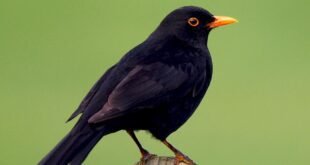Raising geese involves choosing a breed, nurturing them, and witnessing their growth:
Today you’ll uncover heartwarming surprises and challenges that await you in this delightful, enriching adventure.
Raising Geese
Geese Are Very Hardy
Geese are known for their resilience and can tolerate a wide range of temperatures and weather conditions.
They can adapt to different environments and survive in harsh conditions, making them great pets for those living in colder climates.
Geese are also relatively resistant to disease, so you don’t need to worry too much about their health.
Geese Don’t Roam

Unlike chickens, geese tend to stay close to home and don’t tend to wander off.
This means that they are much easier to keep contained, which is great news for those who don’t have large properties.
It also means that geese are less likely to cause damage to your garden or get lost.
Geese Need a Safe Home
Geese need a secure and comfortable living environment.
They need a shelter that provides them with protection from the elements, predators, and other dangers.
The shelter should be spacious enough to allow the geese to move around freely, with enough room for them to spread their wings.
You will also need to provide them with access to water and food, and make sure that their living area is kept clean.
Geese Are Noisy

One thing you should know about geese is that they can be quite noisy.
They are social animals and will communicate with each other through honking and other vocalizations.
This can be a problem if you have close neighbors who are easily disturbed by noise.
However, some people find the sounds of geese to be quite charming and soothing.
Feed & Water for Goslings
If you are planning on raising goslings, it’s important to provide them with the right feed and water.
Goslings require a high-protein diet to support their growth, so you will need to provide them with chick starter feed.
You should also make sure that they have access to clean, fresh water at all times.
Geese Live a Long Time
Geese are long-lived animals and can live for up to 20 years or more.
This means that they are a long-term commitment and require careful consideration before taking on the responsibility of raising them.
However, many people find that the joy and companionship that geese provide make them well worth the investment.
Brooding Geese
Geese are excellent brooders and can raise their own young without too much intervention from humans.
However, if you do decide to raise goslings yourself, you will need to provide them with a safe and warm brooder.
You can use a heat lamp or a brooder box to keep them warm and comfortable until they are ready to move into their permanent home.
Geese Need a Friend
Geese are social animals and thrive when they have other geese to keep them company.
If you only plan on raising one goose, you will need to spend a lot of time with it to provide the social interaction it needs.
However, it’s always better to have at least two geese so that they can keep each other company.
Beginners Guide to Raising Geese

If you’re new to raising geese, it’s important to do your research and learn as much as you can before taking on the responsibility.
You will need to learn about their nutritional needs, housing requirements, and health issues.
You may also want to consider joining a local goose club or forum to connect with other goose owners and get advice from experienced geese keepers.
Feeding Juvenile & Adult Geese
Feeding geese is relatively simple, but it’s important to make sure that they have access to the right kind of feed. Juvenile geese should be fed a high-protein diet, just like goslings.
However, once they reach adulthood, they can be switched to a lower-protein diet that is appropriate for their needs.
You can provide them with a commercial feed that is formulated for geese, or you can mix your own feed using grains like corn and wheat.
In addition to feed, geese also need access to clean, fresh water at all times.
They should have a source of water deep enough for them to submerge their heads and clean their nostrils.
You can provide them with a pond or a large water container that is cleaned regularly.
Veterinary Care for Geese
Finding a veterinarian who is familiar with treating geese can be a challenge, and many people have to rely on their own knowledge to keep their geese healthy.
However, there are a few things that you can do to help prevent health problems in your geese.
Make sure that they have access to clean water and feed, and keep their living area clean and free of feces.
Regularly check their feet for signs of infection, and monitor their behavior for any changes that could indicate illness.
FAQs About Raising Geese
Are geese worth raising?
Geese can be worth raising for their eggs, meat, and feathers. They are also social animals that can make great companions.
How hard is it to raise a goose?
Raising geese can be challenging, especially for beginners.
However, with proper research and preparation, it is possible to provide them with a safe and comfortable home.
Are geese low maintenance?
Geese require a significant amount of care and attention, especially when it comes to providing them with adequate food, water, and shelter.
They are not considered low maintenance pets.
Will pet geese fly away?
It’s possible for pet geese to fly away, especially if they are not properly trained or provided with a safe and secure living area.
However, there are ways to train geese to stay within a certain area.
Is goose meat tasty?
Goose meat is considered to be flavorful and rich, and is a popular ingredient in many dishes around the world.
See Also: African Grey Parrot Eggs
Are geese noisy?
Geese are known to be noisy animals, especially during breeding season.
They can honk loudly and persistently, which may be bothersome to some people.
What food do geese eat?
Geese primarily eat grass, but can also be fed a diet of grains, fruits, and vegetables.
It’s important to provide them with a balanced and nutritious diet.
Are geese aggressive?
Geese can be territorial and defensive of their territory, especially during breeding season. However, they are not inherently aggressive and can be trained to be more docile.
Can a goose lay 2 eggs a day?
It’s very rare for a goose to lay two eggs in a single day. Most geese lay one egg every day or every other day during the breeding season.
Do geese sleep all night?
Geese usually sleep at night, but will wake up periodically to move around or feed.
They are light sleepers and are easily startled by loud noises or sudden movements.
Can geese live without grass?
Geese require grass and other vegetation as part of their natural diet, and it’s essential to their digestive system.
While they can survive without it, a diet lacking in greens can lead to health issues like malnutrition and digestive problems.
How long do pet geese live?
Domestic geese can live up to 20 years, but their lifespan depends on factors like genetics, diet, and living conditions.
Proper care and attention can help ensure your pet goose lives a long and healthy life.
Can you keep a single goose?
Geese are social animals and thrive in flocks, so it’s not recommended to keep a single goose.
They can become lonely and may exhibit negative behaviors like excessive vocalization or aggression.
What are geese afraid of?
Geese are naturally wary of predators like foxes and coyotes.
They’re also sensitive to loud noises and sudden movements, which can startle them.
Where do geese sleep at night?
Geese typically sleep on the ground in a protected area like a barn or shed. They may also sleep on the water or on a platform above the water to protect themselves from predators.
Final Thoughts About Raising Geese
Raising geese can be a rewarding experience for those who are willing to put in the effort to provide them with a safe and comfortable home.
Geese are hardy, social animals that make great companions, and they can live for up to 20 years or more.
However, it’s important to do your research and learn as much as you can before taking on the responsibility of raising geese.
Make sure that you provide them with the right kind of feed and water, and keep their living area clean and safe.
With proper care, geese can thrive and bring joy to your life for many years to come.

What do you need to get started raising geese?

Raising geese can be both a rewarding and fun experience, but it’s important to ensure you have all the necessary tools before getting started. First and foremost, you’ll need birds – usually goslings or juveniles – readily available from hatcheries. It would be best if you also bought or built an enclosure for them, depending on how big of an area you need to cover.
The enclosure should be large enough for them to roam freely and grow as they mature. Geese also need access to plenty of water for drinking and bathing, so a pond is ideal if your setup allows it.
Additionally, you’ll want a reliable source of food – typically corn or other grains – that can provide birds with the nutrition they need to stay healthy. Finally, supplying birds with adequate shelter from extreme temperatures will ensure their comfort and well-being during winter months or when the weather turns bad. All these items combined will help get you on your way to raising happy and healthy geese!
How do you choose the right breed of goose for your needs and climate zone?
If you’re thinking of adding geese to your backyard, choosing the right breed for your region and purpose is important. The types of birds available range from small breeds like the Chinese Central goose, which is a perfect choice for areas with mild winters, to heavier types such as the Burkina Faso, which is hardy enough to survive bitter cold temperatures.
Other considerations include what types of habitats are available in your area and if you plan on walking with your geese. Smaller species require more open space and don’t do well in cramped enclosures, while larger types prefer wider open plains where they can roam freely. You’ll also want to consider how much noise and mess your geese will make during their activities.
Breeds such as the Tufted Egyptian are known for being quieter than others – a helpful feature for those living in populated areas – while other types may produce an unpleasant odor or leave droppings around your yard.
Whatever type you decide on, make sure it fits your needs and climate zone! With careful research and knowledge of their abilities and limitations, you can find the right breed of goose to add some character (and maybe even delicious eggs!) To your home life.
What kind of housing do geese need, and what should it include?
When providing housing for geese, birdhouse wood is the most ideal material. Wood provides excellent insulation against the cold and helps to deflect rain and other wet weather. It also allows for good air circulation, keeping the bird’s living space more comfortable year-round.
Geese need big birdhouses to house multiple birds comfortably; at least 10 square feet should be standard. If a birdhouse has several floors inside, it should have multiple entrances so that each bird can have access without hindering its neighbors.
Additionally, the birdhouse should provide plenty of perching surfaces and at least 12 inches of clearance from the floor to accommodate larger geese or those with young offspring.
It is also important to position birdhouses away from high wind speeds, as these will cause excess cold drafts during winter months. With an appropriately built birdhouse, you can be confident that your feathered friends have a safe and comfortable home.
What are some tips for feeding and watering your geese properly?

Geese need clean, fresh water available at all times. It is important to check the water levels daily and clean the dishes, especially in the colder months when ice and snow can accumulate in them.
When feeding, it is best to provide a variety of grains such as wheat, barley, oats, millet, corn, sunflower seeds, and grit, enabling your geese to get a balanced diet. Feeding time should be restricted to morning and evening; geese like routine, so ensure they have access to food at similar times each day.
Additionally, supplement their diet with lettuce or other dark leafy greens high in vitamins and some cooked vegetables like squash or sweet potato. All feed should be given on clean ground or grass and not next to their nests, as this will encourage them to forage for additional nutrients in the environment.
Finally, watch out for any unwanted visitors, such as rodents! Keeping your geese’s area clean will help to mitigate any health risks associated with pests or contamination. Following these tips can help ensure that you’re providing your geese with a balanced diet and plenty of clean water which will keep them healthy and happy!
How can you keep your geese healthy and free from pests and diseases?
Keeping geese healthy requires a bit of extra care, but the tips in this article will help you get started. Firstly, providing your geese with a balanced diet rich in essential vitamins and minerals is essential. A combination of high-quality poultry feed and green vegetables like grass, kale, and spinach should be plentiful to keep your flock happy and healthy.
Secondly, ensure that your geese always have access to clean water. Setting up a waterer and checking it regularly for debris or contamination is a must. Thirdly, give your geese regular veterinary visits for preventative screenings and treatments. Be sure to ask questions about recognizing any signs of possible pests or diseases so you can take action immediately if needed.
Finally, keep the area around the coop clean by removing old feathers or animal waste to keep your geese free from pests and illnesses. Making these tips part of your everyday routine is key to keeping your geese healthy!
By following these tips, you’ll be well on your way to having a healthy flock of geese! This way, you can enjoy their company without worrying that they aren’t receiving the best care possible! With just a few simple steps, it’s easy to make sure our feathered friends stay safe and sound!
When is the best time to harvest eggs or meat from your geese flock?
Knowing when to harvest eggs or meat from your geese flock is important to successful geese farming. Generally speaking, what month birds lay eggs can be a helpful guide.
Not all birding breeds have the same life cycle, so it’s important to research what species you’re raising and what type of egg-laying and winterizing habits they typically have. Healthy geese will typically start producing eggs in the early springtime, with most flocks harvesting the first round in late April or May.
If you plan to harvest goose meat, it’s a good idea to wait until late summer or early autumn; this ensures that the birds are well-fed and strong enough to provide a quality product. When frost sets in, geese will naturally stop laying eggs; this is typically a sign that it’s time to harvest what’s left on your farm. With careful planning and research, you can ensure you get the best possible outcome from your flock!
Conclusion
Now that you know about raising geese, it’s time to start! You’ll need basic supplies like a coop, feed and water containers, fencing, etc. Once you have everything set up, just follow these tips for feeding, watering, and caring for your geese flock. And, of course, don’t forget to clean up after your birds–here’s how to do it properly. Thanks for reading our guide on how to raise geese!
 Access Birds Let’s Make The World A Happier, Healthier Place For Birds.
Access Birds Let’s Make The World A Happier, Healthier Place For Birds.




